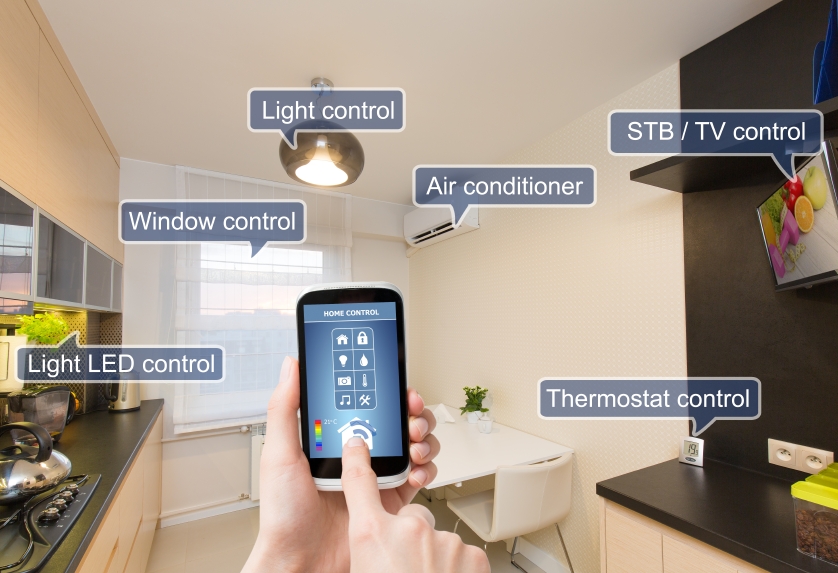You are viewing our site as an Agent, Switch Your View:
Agent | Broker Reset Filters to Default Back to ListThe Dumb Thing About Smart Homes
February 26 2019
 Today, you can talk to your house. Just tell Alexa or Google to lock your front door, turn off your lights, close the garage, set the coffee maker for 6:00 am and turn the temperature down to 68 degrees, and it will happen. And you can do this – and a lot more - all from the comfort of your bed. That's a pretty smart home, isn't it?
Today, you can talk to your house. Just tell Alexa or Google to lock your front door, turn off your lights, close the garage, set the coffee maker for 6:00 am and turn the temperature down to 68 degrees, and it will happen. And you can do this – and a lot more - all from the comfort of your bed. That's a pretty smart home, isn't it?
But there's a dumb thing about this type of smart home that can get a real estate agent or broker in trouble: most smart homes won't set themselves up when a home is sold.
This does not apply to all smart homes, but it does to the ones controlled by voice-activated assistants like Amazon Echo or Google Home. These smart home systems are set up and customized by the current owner, and they can't be transferred to a new owner. That means the buyer, most often, must start from scratch and create their own smart home setup.
Now that may sound like a simple thing, but if you promoted the fact that the house is a smart home, you might end up with a very unhappy buyer. Depending on the number of smart devices the house has, it could take hours and – depending on the age and brand of the smart devices – even days for an inexperienced person to fully set up a smart home with all the bells and whistles.
Everything in that house today connects specifically to the current internet setup and connection that the owners have in their house. Every single smart device uses the owners' password to connect to the internet.
More importantly, the master controller for all the devices is inside a mobile app. That mobile app can only be accessed by the owner's Amazon or Google account. So far, neither Amazon nor Google has made it possible to transfer these smart home setups. And a seller is not about to share access to their Amazon or Google accounts with a buyer.
When a buyer purchases a smart home that is controlled through Alexa or Google, they are going to have to start at the beginning. Your job as an agent or broker is two-fold. First, you need to understand that these smart homes are not portable unless the owner takes all the devices with them, leaving a dumb house.
Most owners are most likely to take the voice activated controls – the Amazon Echos that operate Alexa or the Google Home devices. They also might take the smaller items, such as wall plugs for appliances and lamps. But they are not likely to take the smart locks, or the Ring doorbell, or the garage door opener, or the smart appliances.
That's why your seller needs to provide a complete inventory of every smart device, including the make and model. The make and model information is vital because not all smart devices connect the same way.
The key for an agent is how you describe smart homes in terms of each house's capabilities – not what it can do, but what it can't do. Be transparent with your buyers. Tell them they will have to create their custom setup, but that will also mean it will be more secure: it will be tied to their account, their internet connection, and their passwords.
Providing buyers with a detailed inventory list of all the smart devices will be a blessing – and a huge timesaver when they need to troubleshoot. It's almost guaranteed they will need to troubleshoot when setting up smart home devices.
Setting up a smart home can be very time consuming if you have dozens of devices from different manufacturers. Especially when you have never done it before. And most buyers have never done it before.
The best advice, therefore, is not to oversell a smart home. When demonstrating what it can do, provide a full disclosure that what you are showing is customized to the owner, not the house.
If you want to learn more about smart homes, here's a primer, "A Quick Review of smart home Technology," and information about how to stage a smart home here: "3 Things that You Need to Know About smart home Staging."
Fortunately for agents and brokers, the majority have access to Tech Helpline, real estate's number one technical support team, that can offer agents help with their own smart home setups. Tech Helpline, a service from the Florida Realtors, is a member benefit provided by many of the largest MLSs, trade associations, and brokerages throughout the U.S. and Canada. For the 600,000 Realtors who have access, it's free to use.
Tricia Stamper is Director of Technology at Florida Realtors®, which owns and operates Tech Helpline and Form Simplicity.









